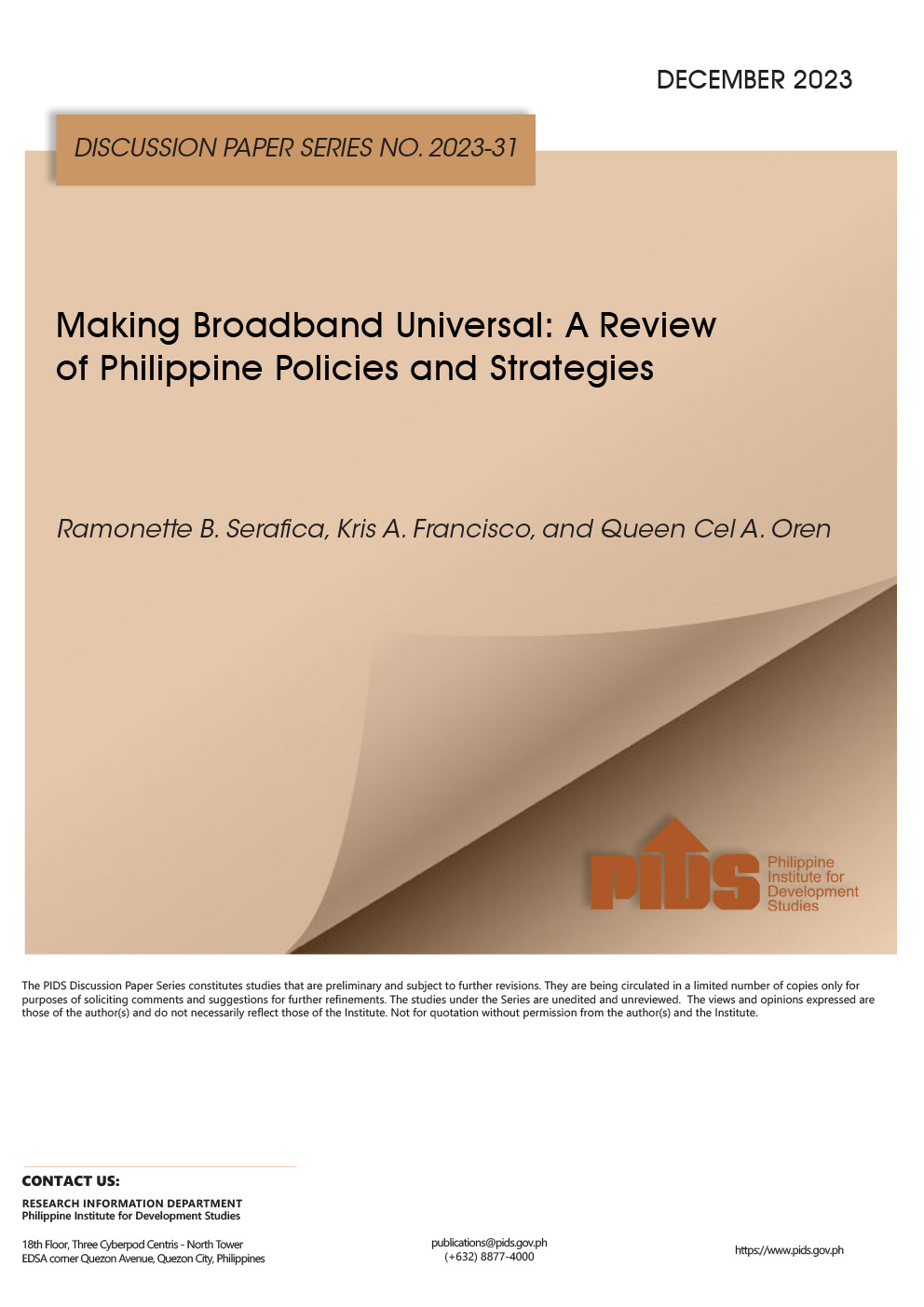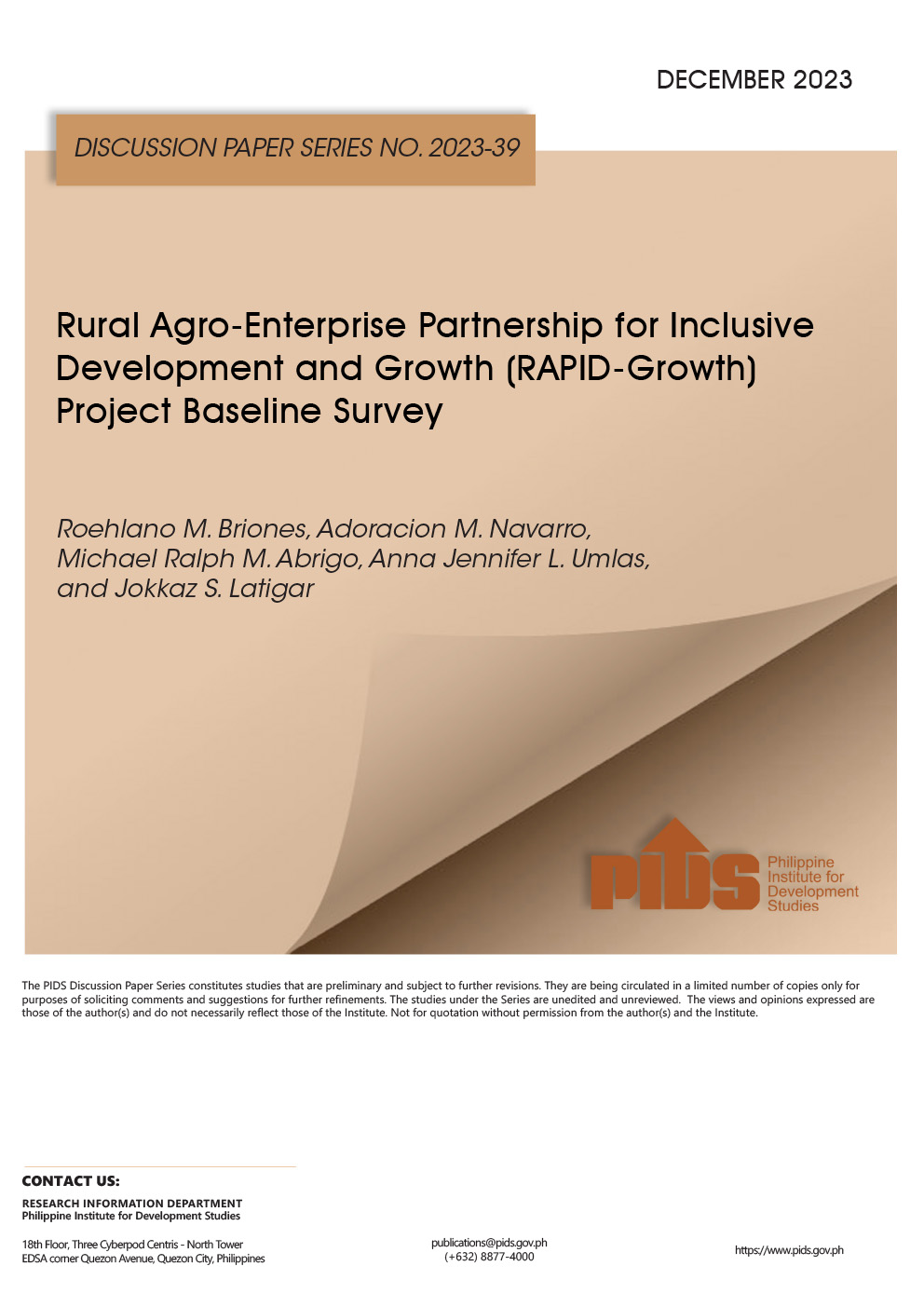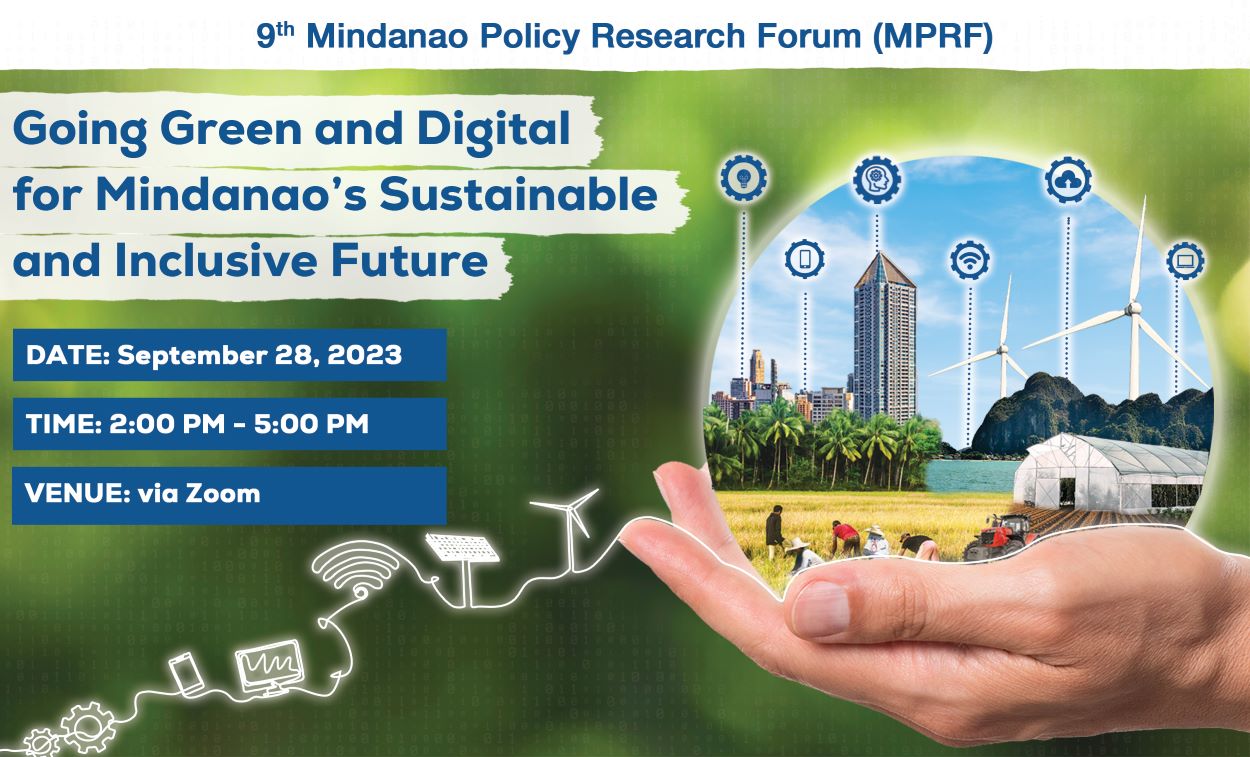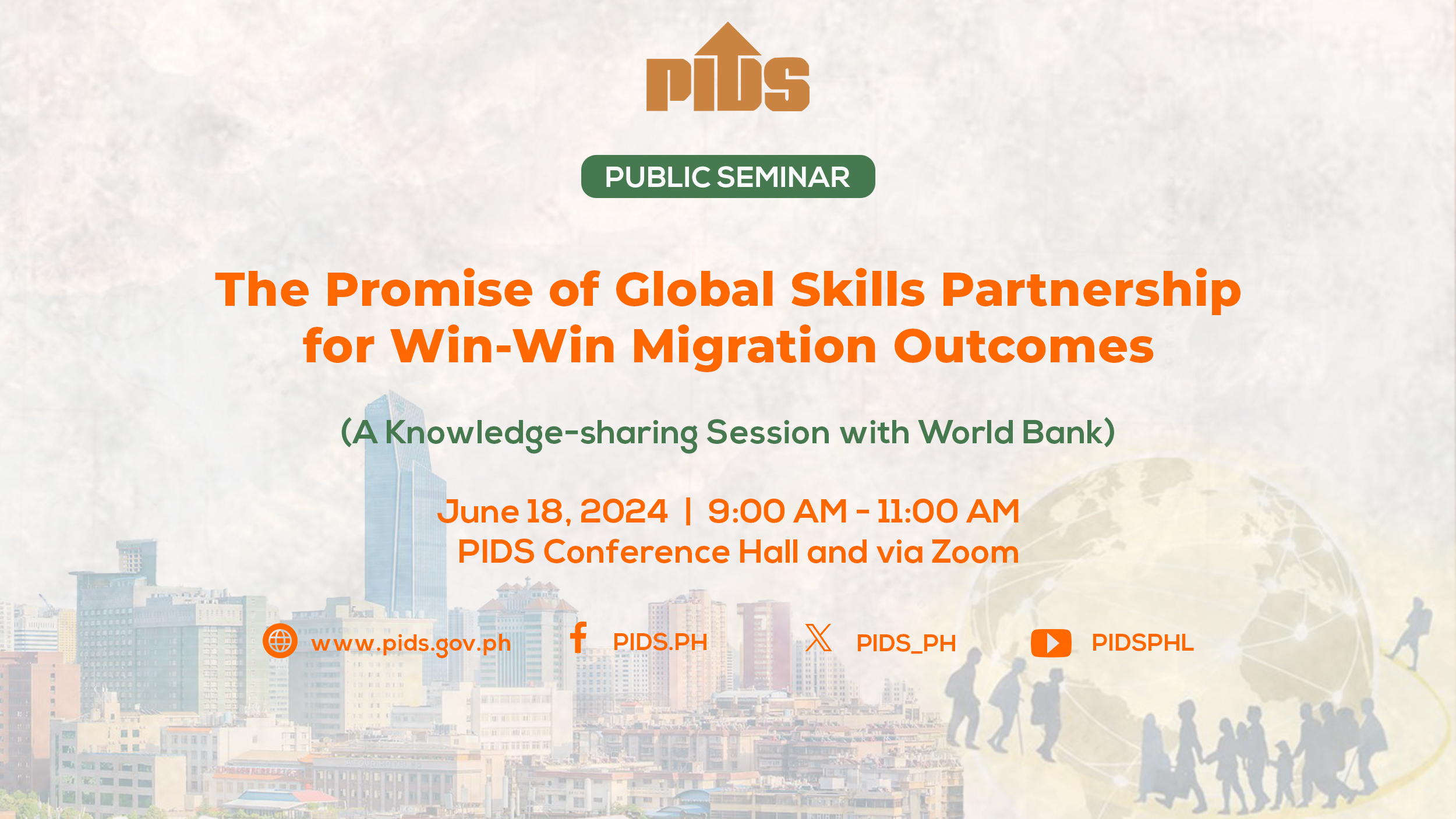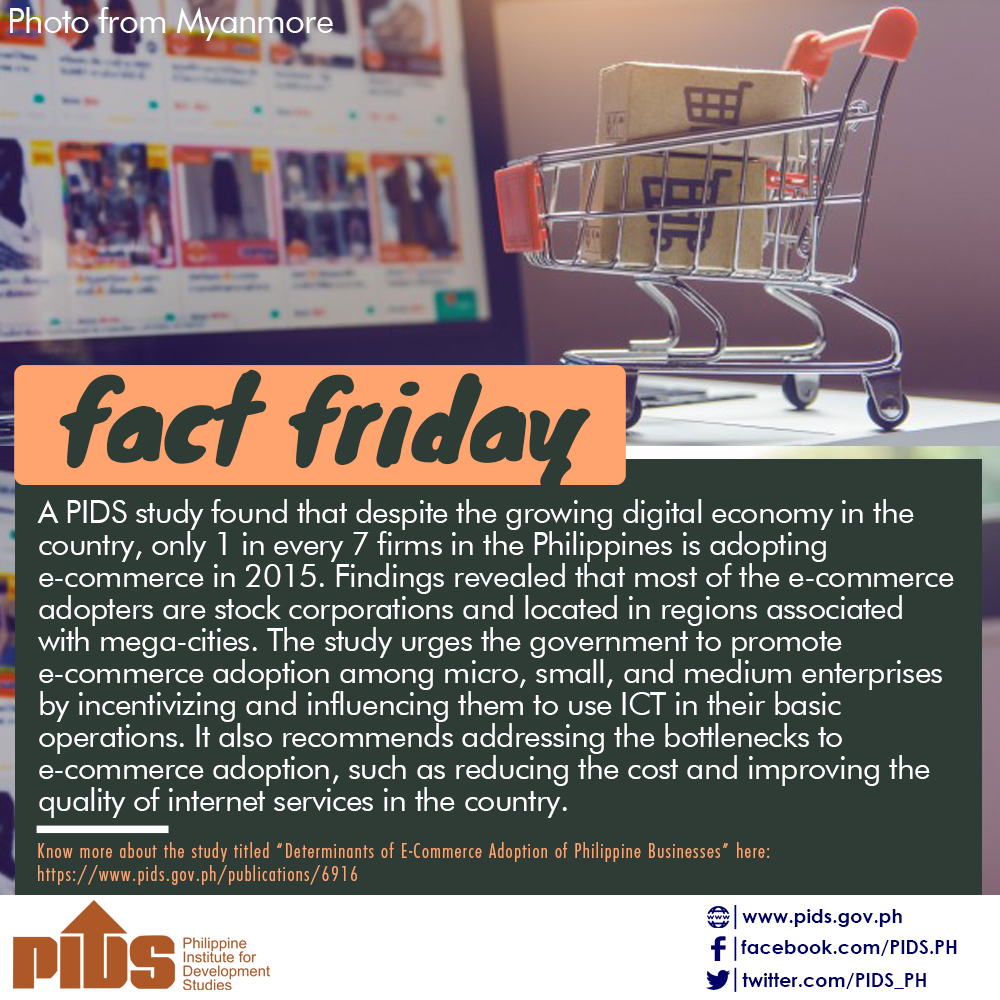DAVAO CITY -- The Mindanao Business Council (MinBC) is eyeing more national policies that are favorable to the Philippines’ second biggest island after a partnership was forged between the Philippine Institute for Development Studies (PIDS) and the Mindanao Development Authority (MinDA).
The Memorandum of Understanding (MoU) between PIDS and MinDa, which aims to promote policy research and knowledge sharing, was signed last Friday during the 1st Mindanao Policy Research Forum on "Advancing Mindanao: Toward Sustainable Economic Development and Balanced Ecosystems.”
"There are many policies made that are against Mindanao. With this agreement, we will be able to influence policies so it won’t be biased against Mindanao and will instead help businesses here,” MinBC President Vicente T. Lao said.
With the partnership, Mindanao can now request PIDS to come up with policies that will help the island’s economy, particularly the agriculture and tourism industries, in terms of making it more competitive in the global arena.
One example is a policy study that would recommend lesser or no taxes on poultry, said Mr. Lao, who is chairman and chief executive officer of Maharlika Agro-Marine Ventures Corp., which imports ducks from the United Kingdom, breeds them in Bukidnon, and sells dressed and processed products.
Undersecretary Janet M. Lopoz, executive director of MinDa, said the MoU formalizes and strengthens the existing partnership between the two agencies since they have already been using the studies of PIDS.
Ms. Lopoz said MinDa is excited about being able to access the Regulatory Impact Assessment, a new system that will evaluate the impact of a proposed legislation and determine if a policy has beneficial or adverse effects.
"There are many policies that are national in nature but needs tweaking to make it advantageous for Mindanao such as the roll-on, roll-off (RORO), specifically the chassis RORO, which is urgent for Mindanao due to our proximity to the Brunei, Indonesia, Malaysia, Philippines-East ASEAN (Association of Southeast Asian Nations) Growth Area,” she said.
The proposal to amend the policy on RORO to include chassis RORO in preparation for the ASEAN Economic Community (AEC) has been endorsed by the Department of Transportation and Communications.
Another policy being pushed by MinDa is one that will allow non-convention sized vessels on the island-provinces of Basilan, Sulu and Tawi-Tawi since "these are vessels not recognized for trading, but which are conventionally used in these areas,” Ms. Lopoz said.
Also part of the MoU is the establishment of the Mindanao Knowledge Research and Policy Center (MKRPC) to make the island more competitive in the AEC.
The MKRPC will be a knowledge and information network involving the island’s higher education, research and training institutions, and service providers.
"This partnership has a lot of potential in creating synergies for the development of Mindanao given the institute’s limited financial, human and technical resources,” PIDS President Gilberto M. Llanto said.
The signing of the MoU is the highlight of this year’s 13th Development Policy Research Month, which focuses on regulatory issues and the critical need to build a formal regulatory management system that is backed by research evidence and systematic assessment of proposed policies and regulations before implementation.
CABOTAGE LAW
Mr. Llanto indirectly acknowledged that PIDS has not done a significant number of policy research on Mindanao by saying that he is not very familiar with issues and policies involving Mindanao.
However, he cited the recently approved Cabotage Law as one policy that came as a result of research.
"In the Cabotage Law, my recommendation was to liberalize the whole shipping industry based on the theory that the country’s shipping industry failed to modernize because of lack of competition,” Mr. Llanto said.
The approved amendments, however, was still limited to foreign vessels being allowed to dock in multiple ports but not serving domestic cargo.
"The Cabotage Law is one national policy which has adverse effects only to Mindanao and we’ve been fighting for its amendment for ages. Luzon is not so much concerned with the Cabotage Law while almost all shipping magnates are based in Visayas so they do not want to rock the boat. It is only Mindanao affected by this inequity,” Mr. Llanto said.
Mr. Lao, for his part, said while the Mindanao business community welcomes the changes, they want concerned government agencies such as the Maritime Industry Authority to hasten the issuance of the implementing rules and regulations (IRR).
With the IRR pending, he said, "almost everybody does not know how to go about it.”
BANGSAMORO
Mr. Llanto also said the PIDS has not undertaken any research work on the economic and other impact of the proposed Bangsamoro law that will create a new entity replacing the Autonomous Region in Muslim Mindanao (ARMM).
"PIDs has not started any research on the effects of the Bangsamoro, but we have research fellows who are involved in Bangsamoro studies in their personal capacities,” Mr. Llanto said.
Engr. Windel P. Diangcalan, programs division head of the Bangsamoro Development Agency, said they were in charge of the road map for the Bangsamoro.
The road map contains an economic and social plan that will be used by the Bangsamoro Transition Authority (BTA), the team that will coordinate the shift from the ARMM to the new political entity.
"The intergovernmental regulations in the ARMM are complicated and it needs to be addressed, and the devolution studied. We also suggest that we adopt one policy in Mindanao so we can move as one,” said lawyer Anwar A. Malang, regional secretary of the Department of Interior and Local Government in the ARMM.
"Depending on the policies that will be implemented, Mindanao can push the country up or pull it down,” Mr. Malang added. -
Mindanao businesses expect favorable policies with new partnership

